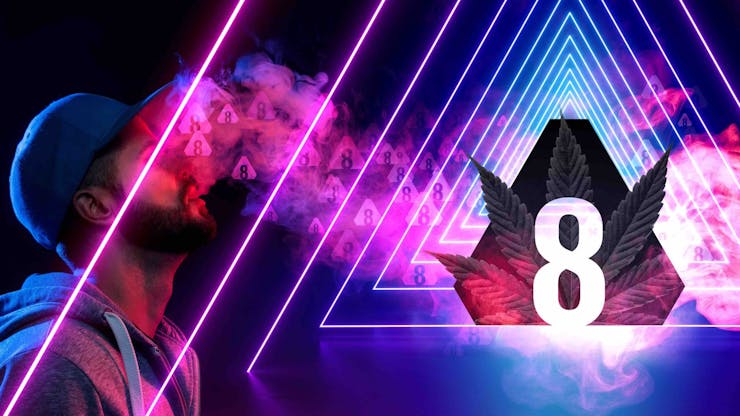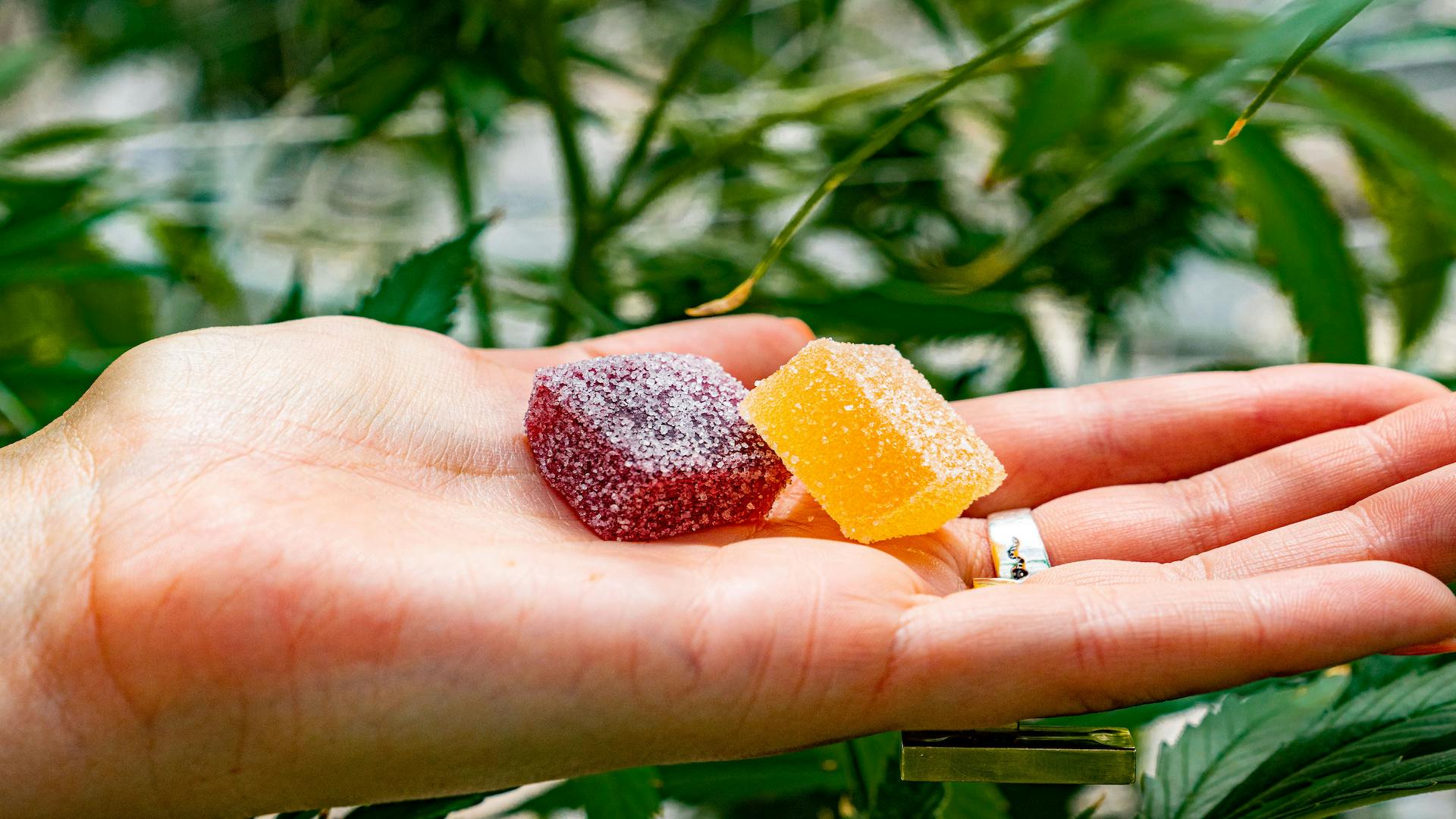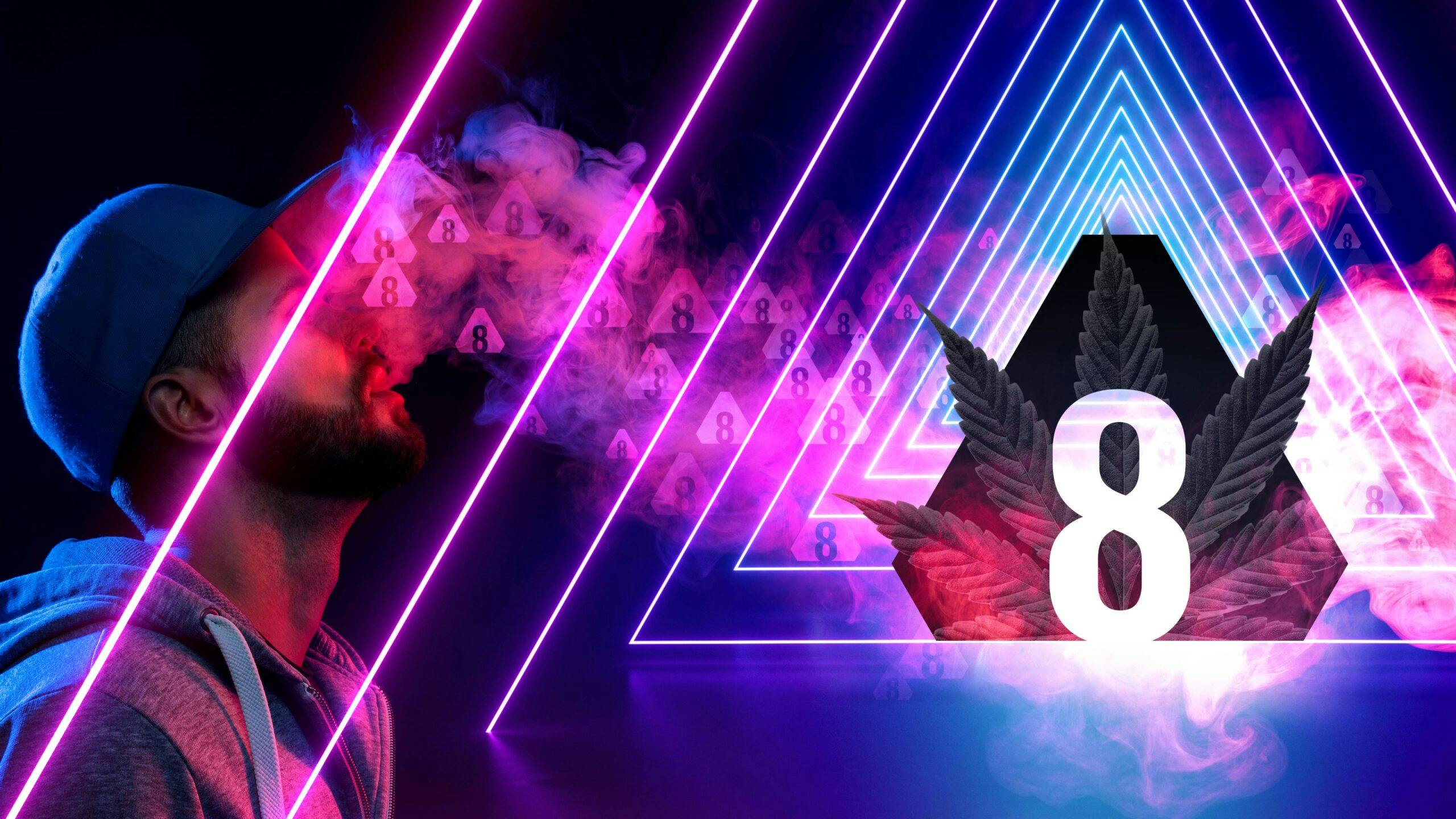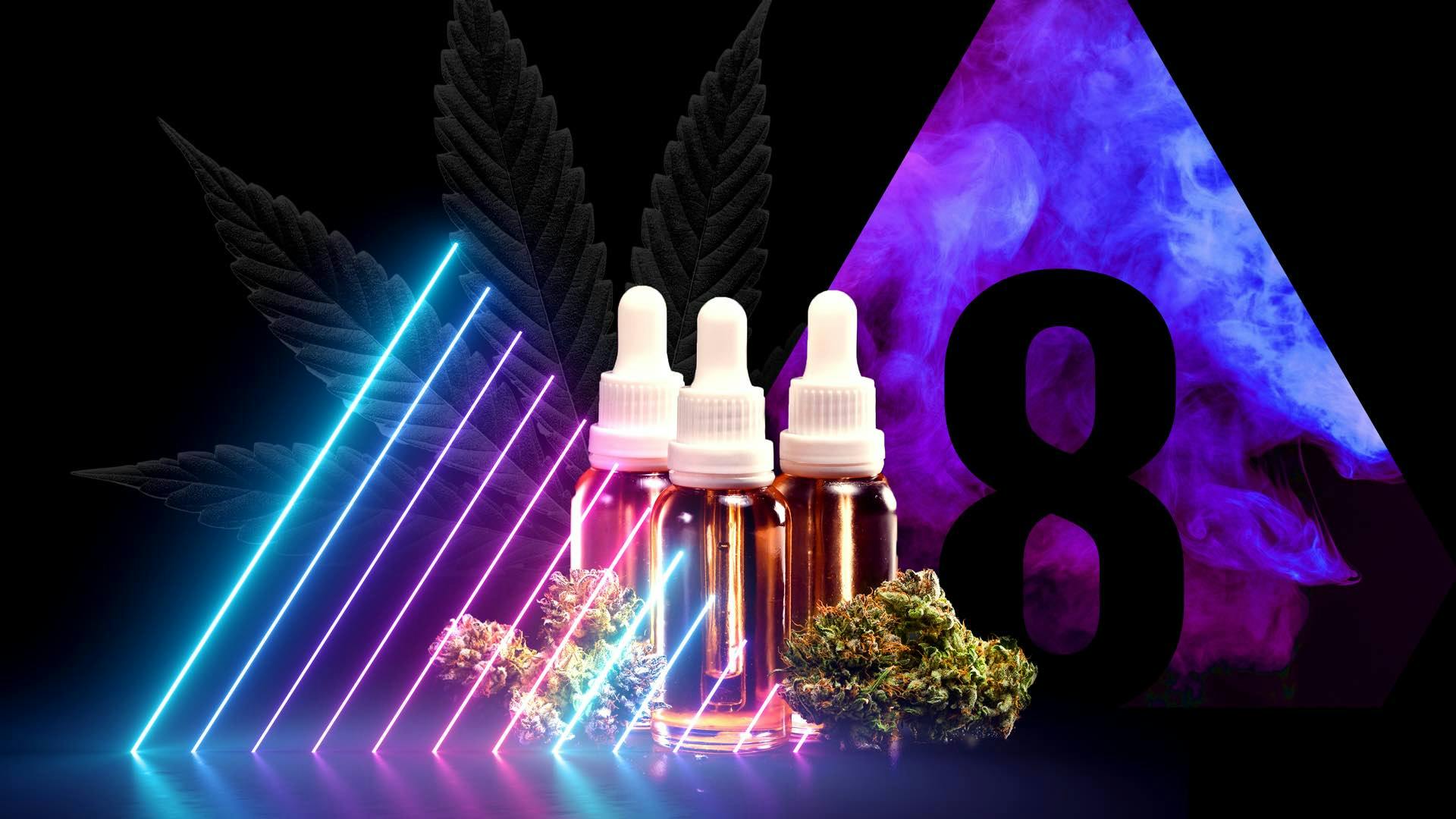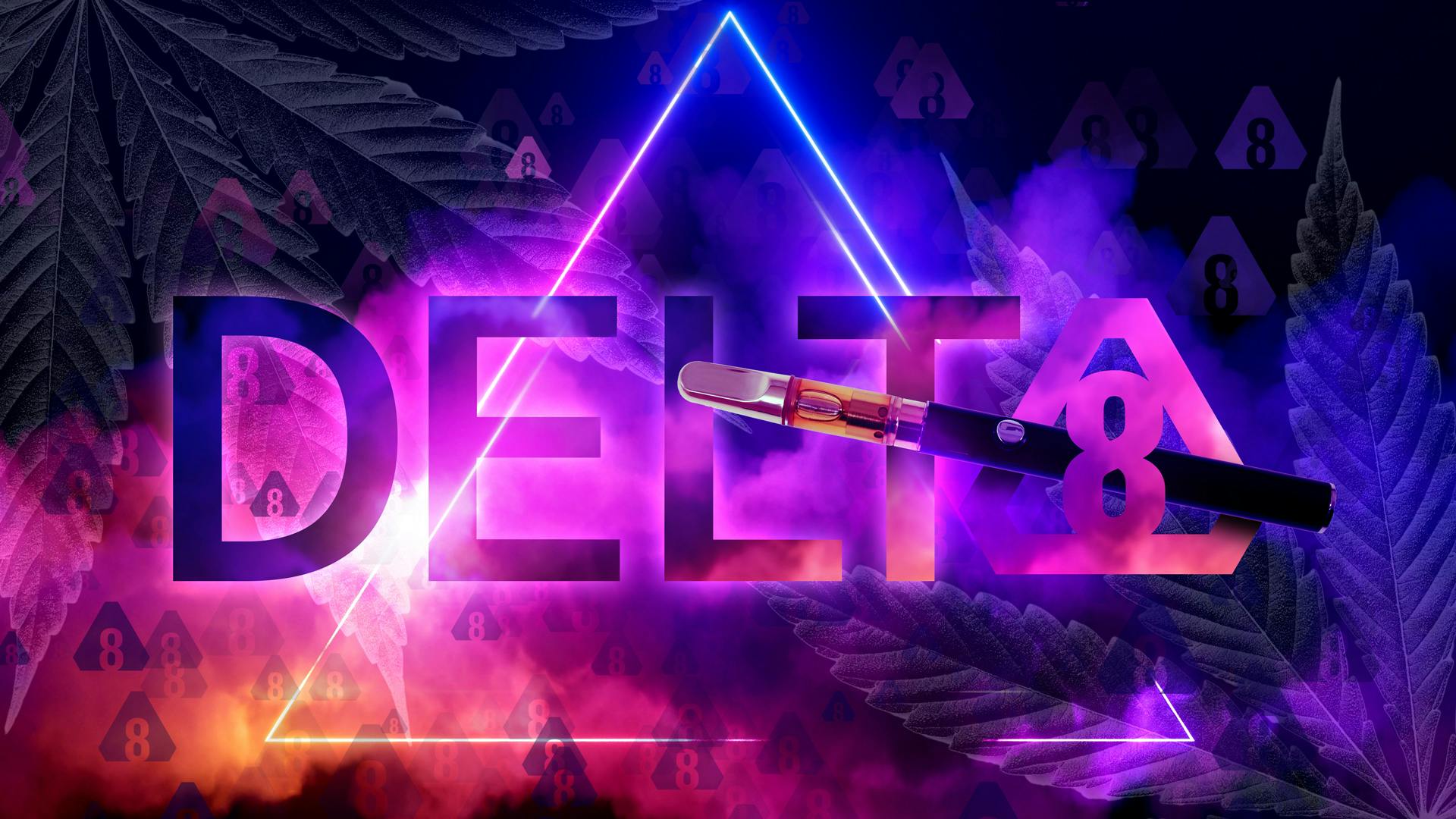Delta-8 THC products have exploded in popularity in the past year, especially in states that haven’t yet legalized the adult use of cannabis.
Illicit delta-8 THC vape cartridges may be setting America up for another VAPI lung crisis.
The legal status of delta-8 continues to evolve (more on that here), but there’s a question consumers should ask before considering delta-8’s legality: Is it safe to consume?
Nearly all delta-8 THC products are sold outside of state-licensed and state-regulated cannabis industries. In that unregulated space, there are no rules to prevent bad actors from making and selling potentially toxic products.
That’s a pressing and consistent concern we heard from regulators, lab technicians, physicians, and other experts.
Alarming results from product tests
A report issued June 2 by the U.S. Cannabis Council, a national trade group representing state-licensed cannabis companies and legalization advocates, described the boom in unregulated delta-8 THC sales as a “rapidly expanding crisis.”
No testing. No oversight. No telling what’s in those carts.
Sales of delta-8 THC products pose a competitive threat to licensed and regulated cannabis manufacturers and retailers, because delta-8 makers don’t have to abide by the costly quality control and safety standards imposed upon licensed companies. But that doesn’t mean the public health risks expressed by licensed companies aren’t unfounded.
While efforts to legalize and regulate cannabis “should encompass delta-8 THC,” the Cannabis Council report stated, “the fact that it is being sold outside of the regulated marketplace with no oversight or testing and is readily available to children is alarming, and it presents a public health risk of potentially wider impact than the vape crisis.”

Why should I be careful?
Whether it’s inhaling harmful contaminants, buying a product with no actual delta-8 THC, or getting a high that’s far stronger than expected, there’s a lot to consider.
The risks of buying an unlicensed delta-8 THC product can range from simple potency fraud to hospitalization and death. The risks of buying an unlicensed delta-8 THC product can range from simple potency fraud to hospitalization and death—at least in the case of vape products.
That’s no exaggeration. In 2019, more than 2,700 THC vape users were sickened after inhaling Vitamin E oil used as an oil thickener in unlicensed illicit-market cartridges. At least 68 people died after contracting VAPI, or EVALI, the deadly lung condition caused by inhaling vaporized Vitamin E oil. That’s why scientists, growers, lab technicians, other experts and even some sellers will all tell you the same thing: Buyer beware.
What’s in this stuff?
In April 2021, a research team backed by the U.S. Cannabis Council purchased an assortment of unlicensed delta-8 THC products from unregulated retail stores in California, Florida, Nevada, Texas, Michigan, Massachusetts, North Carolina, and Indiana.
Many of the unlicensed delta-8 vape cartridges contained solvents at levels not safe for human consumption.
Of the 16 products tested by ProVerde Laboratories in Massachusetts, none were compliant with the legal limit of 0.3% THC specified in the 2018 farm bill.
According to the report, many of the products contained compounds not allowed by state law in regulated cannabis products. Those compounds included the metals chromium, copper, nickel, and lead.
Additionally, many of the samples contained residual traces of solvents (the chemicals used in the process to separate delta-8 THC from hemp) at levels not safe for human inhalation. Those solvents included hexane, methanol, dichloromethane, ethyl acetate, heptane, acetone, and isopropanol.
Retail sources: Untested, unregulated, unknown
There are basically two ways to buy delta-8: online, or in unlicensed stores like smoke shops and gas stations. There are some infused delta-8 THC edible products sold in licensed cannabis stores by reputable companies, but the vast majority of delta-8 products are sold outside the state-licensed cannabis system.
In state-licensed cannabis stores, all products are subject to strict state-mandated testing for potency and purity.
In state-licensed cannabis stores, all cannabis products are subject to strict state-mandated testing for potency and purity. That means a product promising 100mg of delta-8 THC will contain 100mg of delta-8 THC. And inhalable delta-8 products have, in most legal states, been tested for mold, mildew, and other adulterants you don’t want in your lungs. Testing isn’t always perfect—California doesn’t require testing for Vitamin E oil, for instance—but it’s far better than no testing at all.
When buying online or in unlicensed stores, it’s not uncommon to come across totally untested and potentially contaminated forms of delta-8. There’s no way to know whether the delta-8 potency advertised on the package is actually contained in the product.
Although delta-8 THC is a naturally occurring cannabinoid, the substance on the market today is typically synthesized from CBD—and there’s no quality control check on products produced outside the state-licensed cannabis system.
Exploring a new high
Another thing to consider: the new and untested nature of the cannabinoid itself. Delta-8 THC, in this concentrated form, is something we haven’t seen before.
We’re not nearly as familiar with delta-8 as we are with whole, natural cannabis, according to Dr. Peter Grinspoon, a Harvard professor and physician who specializes in cannabis.
“We know the harms of cannabis really well because, a) it’s been around for 5,000 years, and b), the government spent $10 billion trying to prove that it was harmful,” Grinspoon explained in an email to Leafly.
“Delta-8 is in such a small proportion in whole plant cannabis, which has like 600 compounds in it and like 150 or so cannabinoids,” Grinspoon added, explaining these exist in very, very small quantities in whole cannabis. “So, just because cannabis is fairly safe—or relatively nontoxic—doesn’t mean that each of the components in it [are also fairly safe].”
That’s because consumers are now ingesting those individual components, like delta-8, in much larger quantities than ever before.
A relatively unknown cannabinoid
“We take a lot of liberties with this plant, you know, turning it into a vaporizable product or creating a hard-pressed tablet,” said Dr. Mary Clifton, a New York-based physician who specializes in cannabinoid medicine.
It’s nearly impossible to find clinical studies on the effects of delta-8 THC. The only known study was published nearly 50 years ago, in 1973. That research found intravenous delta-8 THC doses ranging from 1mg to 6mg “produced a wide spectrum of cannabis-like effects.” Which doesn’t tell us much.
More recently, a cancer researcher in Israel proposed a study of delta-8 THC to figure out how effective certain doses of delta-8 THC would be in alleviating nausea in cancer patients undergoing chemotherapy. That study began in 2006 but was abandoned prior to completion.
Chemicals and contaminants
In states where cannabis is legal for adults, there are systems of strict rules and regulations governing who sells it and how and where it’s sold.
Delta-8 THC surfaced on the market in 2019 in a totally different way—appearing on shelves in stores not licensed to sell cannabis. In many cases, it appeared alongside non-intoxicating CBD products, which are legal to sell without a cannabis license.
States have been grappling with how to handle this relatively new substance. In Oregon, a proposed bill would regulate the “processing, transportation, delivery, sale and purchase” of delta-8 and other artificially derived cannabinoids — treating it similar to the state’s legal cannabis industry. New York’s state health department recently banned the manufacture of delta-8 THC products derived from hemp. The Washington State Liquor and Cannabis Board (LCB) recently announced that licensed delta-8 THC products must conform to state delta-9 THC regulations—but the LCB can’t regulate cannabis products sold outside the state-licensed system.
“At this point, most of the concern is just the unknowns,” said Steven Crowley, a hemp and processing technician and compliance specialist for the Oregon Liquor Control Commission, which handles state regulations on cannabis. Crowley said it’s “common” to see delta-8 products with 10% or more unidentified compounds, a troubling trend he wants to see fixed.
Toxins entering during the distillation process
While delta-8 is a naturally occurring cannabinoid, it’s synthesized into a distillate through a conversion process. This involves first extracting it from hemp or CBD using acid — a process prone to creating unintended byproducts. Solvents used during the extraction process can remain bonded to the delta-8 THC if the extraction isn’t done correctly, according to Roger Brown, president of ACS Laboratory, an award-winning cannabis testing facility in Sun City Center, Florida. Such solvents include heptane, hexane, tulane, sulfuric acid and hydrochloric acid, Brown said.
Copper, chromium and nickel—in levels considered unsafe for inhalation—were found inside seven of 16 delta-8 products tested by the U.S. Cannabis Council, a cannabis industry trade group. Hexane, heptane, ethanol and acetone were also found in some of the products, but not in levels considered unsafe for inhalation, the industry group said.
Have we been here before?
In 2019, a similar boom swept through America’s illicit weed market. THC vape cartridges peddled by street sellers and in unregulated shops ended up containing heavy metals as well as harmful contaminants and substances never meant to be inhaled—like vitamin E acetate.
The inhalation of vaporized vitamin E acetate is what federal health officials believe led to thousands of people suffering severe lung injuries, requiring many of them to be hospitalized and placed on a ventilator to breathe. At least 68 Americans died.
“Regulating Delta-8 THC is critical to avoid similar issues the industry saw with the vape crisis in 2019 — when products from the unregulated market caused major health issues for consumers and damaged public trust for the entire industry,” stated the recent report from the U.S. Cannabis Council.
Anything can be added to an illicit vape cartridge
Much like 2019’s vaping-related crisis, the addition of flavorings to cartridges containing delta-8 distillate creates an opportunity for harmful contaminants to enter a consumer’s lungs, said TJ Sheehy, director of analytics and research for the Oregon Liquor Control Commission.
During the VAPI/EVALI lung crisis of 2019, it wasn’t the THC or nicotine that injured the lungs of consumers. It was an additive, vitamin E acetate.
Just as during the vape crisis, illicit-market consumers are advising each other online about which vape carts to buy—and which ones have made their lungs hurt.
“Hey guys ive been smoking 1 mL of delta 8 via cart every week and a half for 2 months but now my lungs are in the worst pain they have ever been in,” a Reddit user posted earlier this year.
Know what you’re putting in your lungs
There’s been no research, reports, or evidence indicating that delta-8 THC vape cartridges could be causing lung injuries the way vitamin E-tainted vape carts did in 2019. Rather, many of the industry experts we spoke with referenced the 2019 crisis as a cautionary tale of what can happen when an unregulated inhalant is sold in a competitive market.
And then there’s the fact that delta-8 THC has just not been consumed on the commercial market for very long, and has so little research behind it.
“Just like CBD, the marketing claims and the enthusiasm is soaring above the actual science that we have,” Dr. Grinspoon said. “So these things may or may not pan out, but in the meantime, it is a little bit dangerous—the fact that it’s unregulated and untested.”
